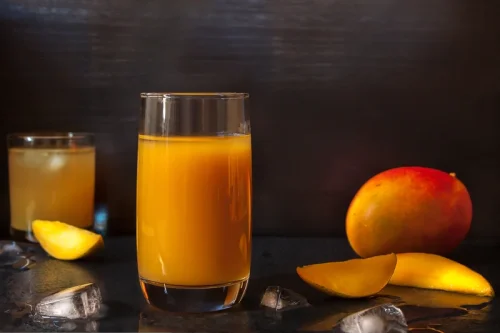
Continue to drink lots of water and perform moderate exercise for the next 24 hours to rid your body of the alcohol. These strategies can help clear alcohol from your system quickly, but the impact of drinking—especially excessive drinking—can still affect your overall health in negative ways. The what is Oxford House definitions for a drink in the US are the common serving sizes for beer (12 ounces), wine (5 ounces), or distilled spirits/hard liquor (1.5 ounces). And not so long ago there was general consensus that drinking in moderation also came with health advantages, including a reduced risk of cardiovascular disease and diabetes.
How do you detox your liver?
- Another thing that will help your liver’s journey in recovery is good nutrition.
- Those who drink on an empty stomach will feel the effects of alcohol more quickly.
- Consuming large amounts of alcohol in a short period of time can result in alcohol poisoning, which is a medical emergency.
- The body’s natural detoxification process is primarily managed by the liver, which breaks down alcohol at a consistent rate.
- Winding down with a glass of wine or a beer every day isn’t healthy for our hearts, as once thought.
- You may also become less coordinated, and your speech may begin to slow down.
The amount of fat versus lean muscle someone has can influence their volume of distribution, which could explain why men and women show different responses to alcohol. EtG remains detectable in urine for approximately 2-3 days following the last consumption. If you have been drinking, green tea is an excellent way to preserve your liver and counter the symptoms of intoxication. Other factors affect the intoxication level that will cause BAC to rise more quickly and fall more slowly.
Alcohol Detox: 9 Things to Consider
- This rate can vary depending on factors such as age, gender, and liver health.
- It is better to wait until the next day to take a pain reliever such as ibuprofen after the liver has had a chance to process most of the alcohol in your body.
- However, if you continue to consume alcohol, the food you ate beforehand eventually becomes a moot point.
Despite this, less than half of the US public is aware of any alcohol-cancer connection. Changing the labels as suggested by the Surgeon General will require congressional action that may never happen. Although each person metabolizes alcohol a bit differently, there are a few factors that will impact how long you feel the effects and how long alcohol will remain in your system. Roughly 20% of the ethanol in liquor is absorbed into the blood from the stomach and the rest from the small intestine.
Is drinking a little alcohol a day really doing your heart a favor?

Alcohol detection tests can trace alcohol in your system for varying durations. For instance, breathalyzers can detect alcohol for up to 24 hours, while blood tests can identify its presence for up to 12 hours. More advanced tests, like hair follicle tests, can detect alcohol consumption for up to 90 days. If you eat before drinking, the food in your stomach will help slow alcohol’s journey to your small intestine. Since the alcohol remains in the stomach longer, your body can begin to break it down, so less of it reaches your small intestine.

Foods to Eat
Like many other drugs, alcohol can be detected with a hair follicle drug test what gets alcohol out of your body for up to 90 days. Alcohol can be detected in urine for 10 to 12 hours via the traditional urine test. Alcohol can be detected in your breath via a breathalyzer test for up to 24 hours. When misused, alcohol can do as much (or even more) overall harm as many illegal drugs.
- People with alcohol use disorder (AUD) or a history of prolonged heavy drinking may experience withdrawal symptoms when they detox from alcohol.
- Even though alcohol may not show up on a breathalyzer, it may show up on other tests after drinking.
- If you’re a heavy drinker, you may need to wean off alcohol to let your body adjust.
You might find you enjoy outings like walking in the park or going to the movies. Keeping busy is essential, she says; time that was spent drinking needs to be filled with something else, so make a list of ideas. “The bottom line is that if we’re going to remove something, we need to put something else in its place,” she says. You’ll need to put effort into planning ahead, Treloar Padovano adds, especially for situations in which you would typically drink.
What Is the Fastest Way to Eliminate Alcohol?

If you or a loved one struggle with alcohol misuse, it’s important to know that help is only a phone call away. For more information about our treatment programs, give us a call today at . It is possible for your system to still have enough alcohol in it the following day that you could fail a urine or blood test for driving under the influence.
- These things might help you feel better but will not affect alcohol test results.
- Exercises like jogging, cycling, or even brisk walking can help boost your metabolism and circulation.
- These organs play major roles in alcohol metabolism, so any impairment will affect how efficiently they can help alcohol pass through your system.
- It takes five half-lives for your body to metabolize all of the alcohol you’ve had, anywhere between 20 to 25 hours on average.
- Talking to your doctor before taking NyQuil and other medications is best.
- For a person weighing 150 pounds, for example, one standard drink will increase their blood-alcohol concentration by about 0.02%, but the body can only remove about 0.016% per hour on average.
How Long Do The Effects of Alcohol Last?

Severe impairment also increases your risk of alcohol overdose and loss of consciousness. When you first start drinking, you will begin to experience mild signs of impairment. You’ll feel the relaxation and positive mood that makes alcohol consumption enjoyable but also some of the adverse side effects. You may also become less coordinated, and your speech may begin to slow down. If you’re dealing with a hangover, you’ve probably even tried some of the various home remedies to alleviate the usual headache, nausea, and lethargy. Unfortunately, most of these remedies are ineffective, and some can even be more harmful, such as “hair of the dog” or having another drink in the morning.

Among the many ways that alcohol can suppress the immune system, booze can negatively impact the balance of the gut microbiota. Poor gut health and microbiota imbalance can ultimately weaken one aspect of how our body protects us from illness. Ohio State experts explain a new federal advisory that indicates there’s no safe level of regular alcohol use when it comes to cancer risk.
